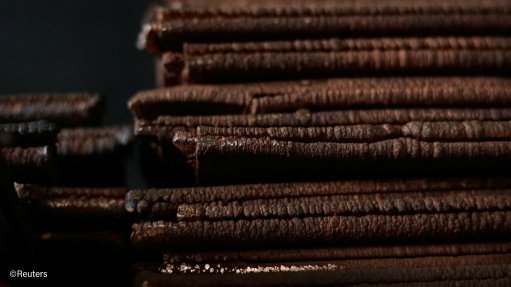Education – another Christmas pass or past?
The Chinese have a saying that goes: Expect this year to be worse than last year, but better than next year. No, it is not, as you might have assumed, attributable to the infamous Chinese teacher, politician and philosopher, Confucius, to whom such profound insights are usually attributable and to whom I will return later.
I am not sure how you experienced 2016, but I am quite relieved that 2016 is finally behind me. With every passing year, as you grow older, you seem to leave someone behind, sometimes more than one person. In a way, it feels like the old schoolyard game – the name of which escapes me – which started with everyone, bar one, lining up on the one side of a sports field and then running to the other side. The person in the middle has to catch one of the many racing to the other side. Once caught, the person joins the one in the middle and the game continues to run its course until everyone ends up in the middle.
A few people that I had known personally did not make it through 2016. There were those whom I never met but who had an influence on my life who also succumbed during the year.
It is Christmas Day and the family is residing in Castillo De Monda, a castle in Monda overlooking the picturesque white Andalusian village of Monda, in the province of Malaga, Spain, about 15 km from Marbella. (In Spanish, ‘ll’ is pronounced ‘y’.) The castle is built on the foundations of Al-Mundat, an Arab fortress dating back to the ninth century, with one of the original towers still visible, as are parts of the foundations.
With some irony, we are in the dining room, sitting down to our Christmas lunch, and in the background the English pop duo Wham!’s 1984 song, Last Christmas, is playing. It was George Michael’s last Christmas. Last Christmas was released by Epic Records on a double A-side with Everything She Wants. It was a record release, a vinyl record – a single in this instance. As a vinyl record, it has two sides, a side A and a side B. Can you explain the “double A-side”? Quite simply, if both sides of the single received a similar amount of radio airplay, often one after the other, it led to them being referred to as double A-side.
The year 2016 was, at least for me, more about what was lost than by what was gained. If you had a similar experience, I wish that the Chinese saying would not come to pass in 2017.
Although I am optimistic about 2017, there is something that concerns me greatly. You might well detect it from Confucius’ wisdom: “If you think in terms of a year, plant a seed; if in terms of ten years, plant trees; if in terms of 100 years, teach the people.”
Only a few days into 2017, the 2016 matric results were released and, according to Basic Education Minister Angie Motsekga, the Class of 2016 achieved a 72.5% pass rate, up from 2015’s 70.7%.
I simply cannot fathom why so much emphasis is still placed on a singular year of education. Equally puzzling is the learners’ excess celebration of their achieving matric, an achievement that is often an excuse to overindulge. But it is not only the learners who seem to have an excuse to overindulge: the KwaZulu-Natal Basic Education Department is said to have hosted a function that its spokesperson said was “held to let our top achievers know that we appreciate them in celebration”. The function cost R750 000.
So, what have these learners achieved exactly? You might point to admission to a South African university. Note that I did not say a “leading international university”. Unlike the advertisement of the City of Johannesburg, with the tagline “a world-class African city”, South Africa universities cannot be called world-class African universities. According to an article published on Independent Online on September 6, 2016, South African universities have dropped markedly in the QS World University Rankings survey. The article states that the survey found that seven of the nine South African universities surveyed had declined in terms of their academic reputation and employer reputation. They were also ranked lower for teaching quality, as determined by the faculty-to-student ratio.
So, in celebrating the ‘achievements’ of the matric learners, what are we really celebrating? An increase in the matric pass rate? You can easily remedy a poor matric pass rate by either dropping the standards or making a mathematical adjustment. It is understood that, depending on the perceived level of difficulty of the matric exam papers, quality assurance body Umalusi is allowed to adjust the marks upwards or downwards by as much as 10%. This practice is known as ‘grade inflation’. Surely, one would expect South African universities to respond to this practice by increasing their entrance requirements.
According to Stellenbosch University’s Dr Nic Spaull, fewer than half of the original students in the Class of 2016 actually completed their schooling and passed the final exams. He suggests that “the root issue is the weak foundation students get in primary schooling”, adding that “there is ample evidence of this in maths and reading as the foundational bell-weather subjects that pretty much everything else is built on”. Learner ‘achievements’ is also enhanced by ‘culling’ – the practice of holding back weaker learners from sitting their matriculation exams in order to inflate the matric pass rate. According to Department of Basic Education statistics, 1 100 877 learners enrolled for Grade 10 in 2014, but only 610 178 wrote Grade 12 exams in 2016.
On January 8, City Press published a story titled ‘The real matric results’ that detailed the initial averages in the various subjects, information that Umalusi says is “confidential”.
According to City Press, for mathematical literacy, the percentage of candidates who passed was 71.3%, but the 361 865 candidates who wrote only managed to get an average of 37%. Almost half of the candidates (46%) got at least 40% for the exam and 4 364 obtained distinctions, which means that the majority would have had to have performed exceptionally poorly to pull the average down so much.
As for regular mathematics, the pass rate of the 265 810 candidates was 51.5%, but the 8 070 distinctions could only result in an average of about 30.8%. In physical science, the pass rate for the 192 618 candidates was 62%, much higher than the class average of 35%. A total of 7 043 candidates achieved distinctions.
The averages for the nonscientific subjects were as follows: geography 39% (302 600 candidates, with a pass rate of 76%); history 44% (157 594 candidates, with a pass rate of 84%); consumer studies 44% (43 214 candidates, with a pass rate of 97%); English home language: 54.7% (107 967 candidates, with a pass rate of 94%); and English first additional language 49% (547 292 candidates, with a pass rate of 97.4%).
It is obvious that South Africa’s education system continues to face many challenges. The question is just whether the Basic Education Department would be willing to acknowledge these challenges and address them. If nothing is done, then the publication of matric results would have little mathematical significance, since it would not be generally understood.
I take my leave with a mathematic joke. Why is a maths book always unhappy? Because it has lots of problems. On second thoughts, let me improve on that and leave you with my personal favourite. Why is 6 afraid of 7? Because 7 8 9.
Comments
Press Office
Announcements
What's On
Subscribe to improve your user experience...
Option 1 (equivalent of R125 a month):
Receive a weekly copy of Creamer Media's Engineering News & Mining Weekly magazine
(print copy for those in South Africa and e-magazine for those outside of South Africa)
Receive daily email newsletters
Access to full search results
Access archive of magazine back copies
Access to Projects in Progress
Access to ONE Research Report of your choice in PDF format
Option 2 (equivalent of R375 a month):
All benefits from Option 1
PLUS
Access to Creamer Media's Research Channel Africa for ALL Research Reports, in PDF format, on various industrial and mining sectors
including Electricity; Water; Energy Transition; Hydrogen; Roads, Rail and Ports; Coal; Gold; Platinum; Battery Metals; etc.
Already a subscriber?
Forgotten your password?
Receive weekly copy of Creamer Media's Engineering News & Mining Weekly magazine (print copy for those in South Africa and e-magazine for those outside of South Africa)
➕
Recieve daily email newsletters
➕
Access to full search results
➕
Access archive of magazine back copies
➕
Access to Projects in Progress
➕
Access to ONE Research Report of your choice in PDF format
RESEARCH CHANNEL AFRICA
R4500 (equivalent of R375 a month)
SUBSCRIBEAll benefits from Option 1
➕
Access to Creamer Media's Research Channel Africa for ALL Research Reports on various industrial and mining sectors, in PDF format, including on:
Electricity
➕
Water
➕
Energy Transition
➕
Hydrogen
➕
Roads, Rail and Ports
➕
Coal
➕
Gold
➕
Platinum
➕
Battery Metals
➕
etc.
Receive all benefits from Option 1 or Option 2 delivered to numerous people at your company
➕
Multiple User names and Passwords for simultaneous log-ins
➕
Intranet integration access to all in your organisation


















